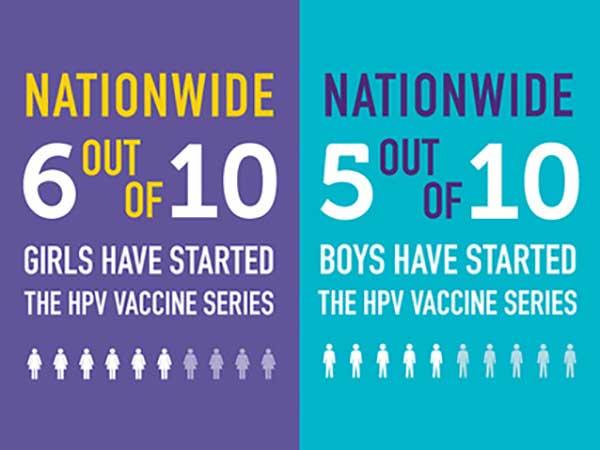Fortunately, there's a safe and effective vaccine. Unfortunately, there's Trump and RFK Jr.
By American College of Cardiology
HPV may double the risk of coronary artery disease, according to new global research that suggests it could be a hidden contributor to heart problems, even in people without other major risk factors.
Human papillomavirus (HPV), widely known for causing several types of cancer, may also significantly increase the risk of heart disease and coronary artery disease, according to a new study presented at the American College of Cardiology’s Annual Scientific Session (ACC.25).
Although the link between HPV and heart disease has only
recently gained attention, this is the first study to combine data from
multiple global sources, nearly 250,000 patients in total, to examine the
connection. The findings strengthen growing evidence that HPV could play a role
in cardiovascular disease and highlight the need for further investigation by
scientists, clinicians, and public health experts.
Clues Pointing to Inflammation and Vaccination
“Our study shows that clearly there is an association of
some kind between HPV and cardiovascular disease,” said Stephen Akinfenwa, MD,
an internal medicine resident at UConn School of Medicine in Farmington,
Connecticut, and the study’s lead author. “The biological mechanism has not
been determined but is hypothesized to be related to chronic inflammation. We
would ultimately like to see if reducing HPV via vaccination could reduce
cardiovascular risk.”
HPV is a common viral infection spread by intimate contact.
It can cause genital warts and cancers of the genitals, anus and throat. The
U.S. Centers for Disease Control and Prevention recommends that all children
and teens receive the HPV vaccine to prevent cancers associated with the
infection; however, many U.S. adults have not been vaccinated because they were
past the recommended age to receive the vaccine when it became available in
2006.
Global Data Illuminates Hidden Dangers
For the meta-analysis, researchers identified seven studies
conducted between 2011 and 2024 that included data on HPV status and
cardiovascular outcomes across a follow-up time of three years to 17 years.
Most were retrospective and longitudinal cohort studies; three were from the
United States, two were from South Korea, one was from Brazil and one was from
Australia.
The researchers used several statistical approaches to
extract data on the relationship between HPV and cardiovascular disease,
coronary artery disease (a condition when plaque builds up in the heart’s
arteries, reducing blood flow to the heart), and high blood pressure among the
pooled study cohorts. Some of the analyses also adjusted for potential
confounding variables such as smoking, diabetes, and other known heart disease
risk factors.
Elevated Risks Confirmed Across Analyses
Overall, the results showed that HPV-positive patients had a
40% higher likelihood of developing cardiovascular disease and twice the risk
of developing coronary artery disease compared with HPV-negative patients. Even
after adjusting for confounding variables such as sociodemographic factors,
medical history, lifestyle behaviors, family history of heart disease, and use
of blood pressure-lowering drugs, the relationship between HPV and heart
disease remained, with HPV-positive patients having a 33% higher risk of
developing cardiovascular disease compared with patients without HPV. No
statistically significant association was found with high blood pressure.
Based on the findings, Akinfenwa said that clinicians could
consider closer heart monitoring for people who test positive for HPV, in
keeping with recommendations for patients with other known heart disease risk
factors.
Uncovering Hidden Risk Factors
“We always talk about cardiovascular risk factors like
smoking, high blood pressure, and so on, but we know that about 20% of
cardiovascular disease cannot be explained by these conventional risk factors,”
Akinfenwa said. “This makes it important to identify non-conventional risk
factors like HPV that could potentially be targeted.”
He said that further research is needed to better understand
the strength and mechanisms of the linkage between HPV infection and heart
disease and the potential role of HPV vaccination in preventing cardiovascular
problems.
Meeting: American College of Cardiology’s Annual Scientific
Session
Akinfenwa will present the study, “Human Papillomavirus
Infection and Cardiovascular Diseases: A Meta-Analysis of Effect Sizes from
249,366 Patients,” on Monday, March 31, 2025, at 12:00 p.m. CT / 17:00 UTC in
South Hall.
